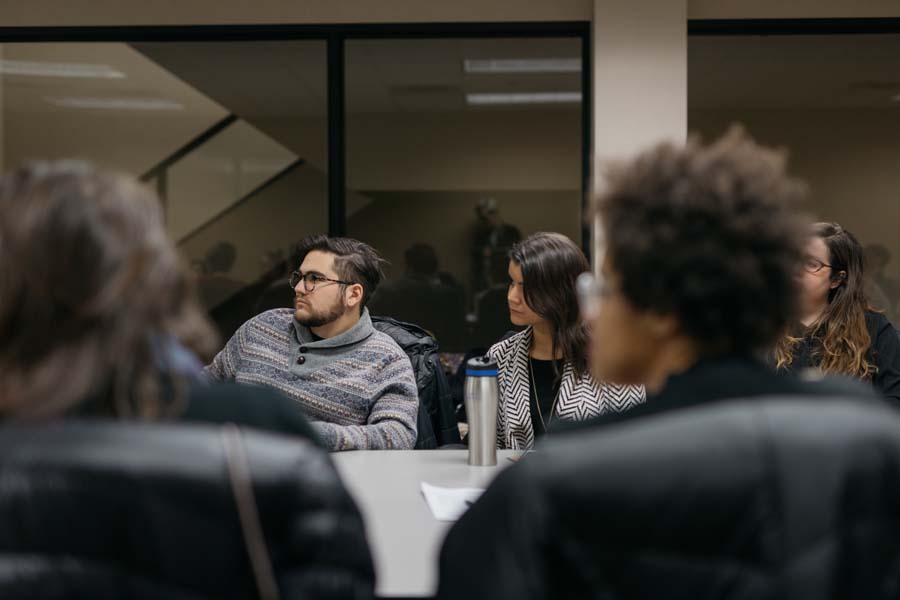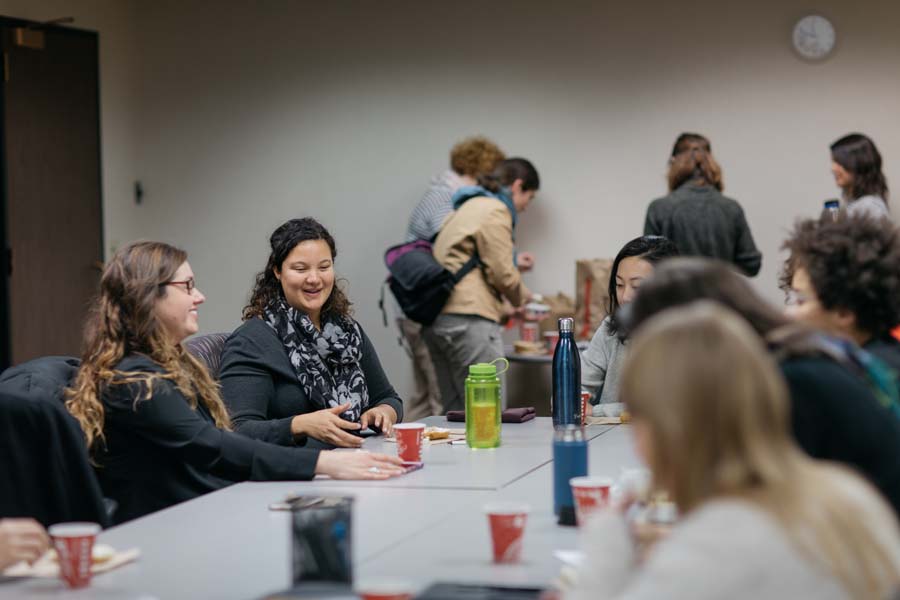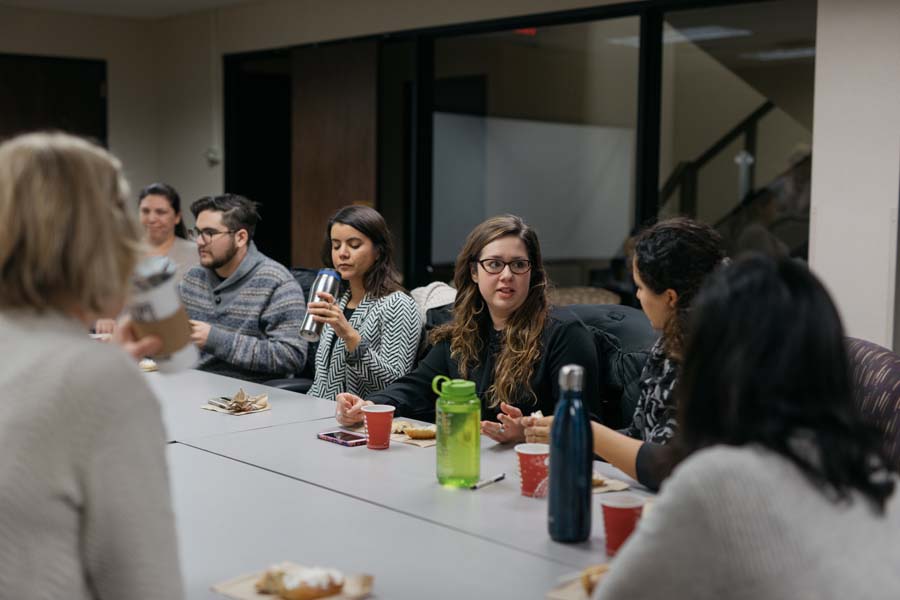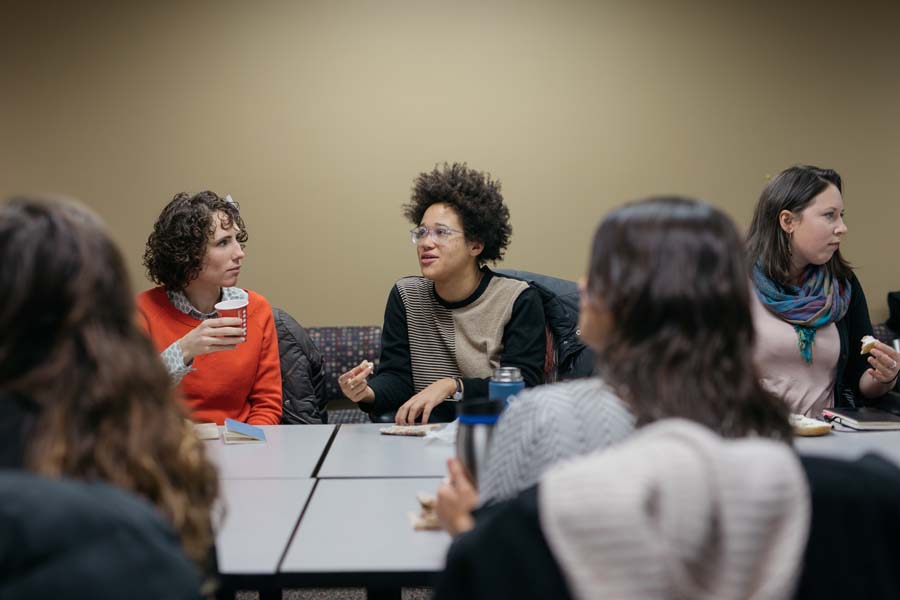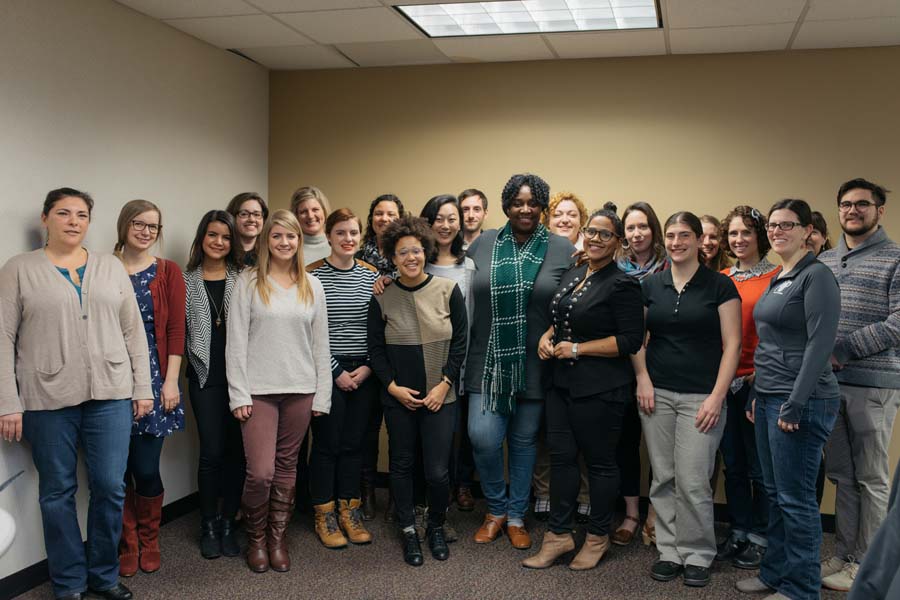
Words by Meher Khan | Photos by Josh Olson
Adaobi Okolue moved through many spaces, including the private, nonprofit, and philanthropic sectors before arriving where she is today: a space that didn’t exist until she carved it out for herself. The executive director and publisher at Twin Cities Media Alliance, Adaobi is fiercely committed to being authentic in her social justice work. During the last YNPN Twin Cities Leadership Breakfast of 2016, Adaobi provided a glimpse into the leadership qualities she values most: courageous confrontation and authenticity, holistic thinking, and the drive to create a space she could thrive in as her career developed.
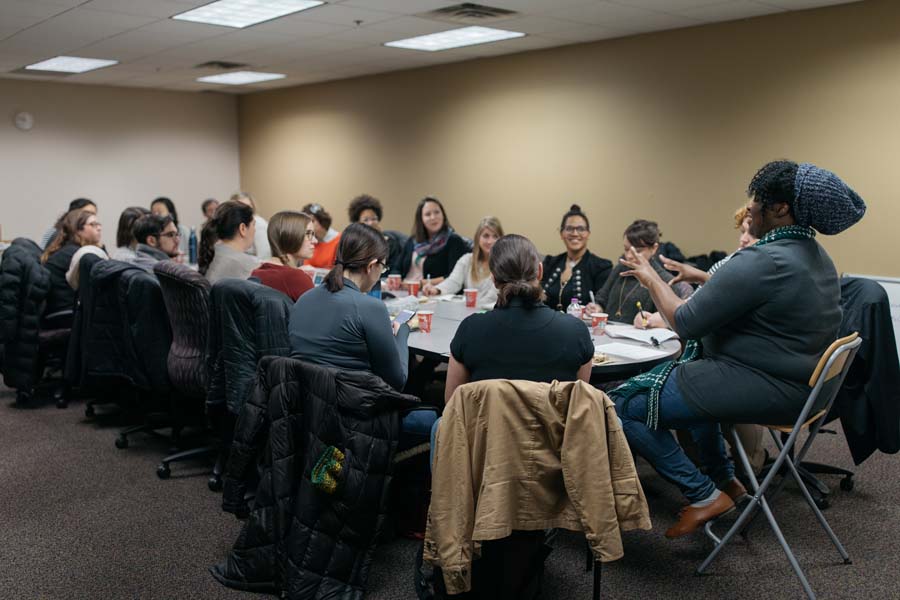
Commitment to Authenticity
Adaobi has carried her devotion to justice and equity throughout her life, largely because of her experience as an immigrant from Nigeria who came to America at the age of five. Though her father got his degree from Southern University in Louisiana in accounting, graduating magna cum laude among other accolades, being an immigrant and a person of color were obstacles as he pursued job opportunities. Though he had envisioned a different path, he continued working in order to survive. It was during this challenging time that Adaobi’s family lost their immigration status. In the process of advocating for her family to stay in the United States, Adaobi developed her ability and desire to speak up for the truth and for others.
As a communications professional with a background in journalism and public relations, she had endless talent and the knack for identifying big-picture goals and the ability to work towards them. But these skills weren’t always appreciated in an environment that valued an established hierarchy. Adaobi’s goals were to include her colleagues’ and her own skills in holistic solutions, but the work environments she found herself in focused on promotions, advertising, individual business units, and the bottom line. Once she understood she wasn’t interested in working toward this focus, Adaobi moved to a job in the nonprofit sector.
It was a step back in some ways—less lucrative and secure than her corporate position. And it was a bit of a culture shock to her as well. She had seen nonprofit work as a socially-driven endeavor, and arrived expecting more diversity in the voices at the table. In Adaobi’s experience, that wasn’t the case. She knew there was still much she wanted to learn about the sector though and spent time listening, which she compares to a slingshot.
“Sometimes you gotta pull back a little bit…it could be anything—retraining, learning new things—that will help you get to that next level or area in your life, once you let go. So I was very cognizant of that and made sure to come into the sector and really listen.”
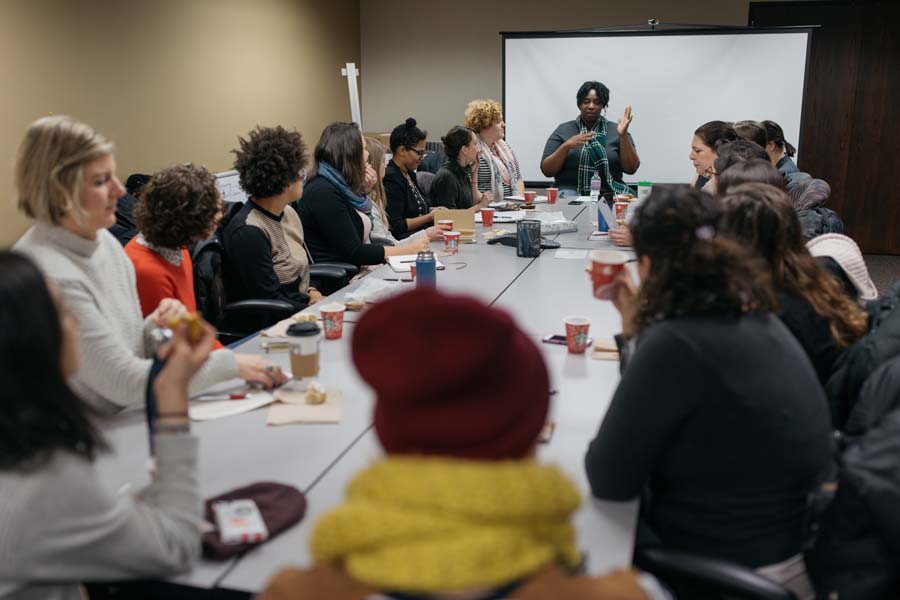
Big Picture Thinking
After a little over a year, Adaobi moved to a communications and advancement position with a foundation, and was laid off after the market crashed in 2009. It was one of “those things that happen,” and served as a pivotal time for her to reflect on where she wanted to go. Unfortunately, Adaobi wasn’t able to point to managers or colleagues that could serve as a role model for her situation. She recognized that up to this point, all her managers had made a clear power distinction between their roles and hers. In addition to power struggles preventing Adaobi from connecting with and learning from her supervisors, feeling isolated as a person of color made the learning process all the more difficult.
“I’ve never had a manager where I felt like I was supported as a woman of color, felt my ideas being supported, or culturally being welcomed into the space, or dealing with super, passive aggressive behavior—which I don’t really do well in. I just never really had a manager that I could say, ‘this was the person that I really looked up to.’”
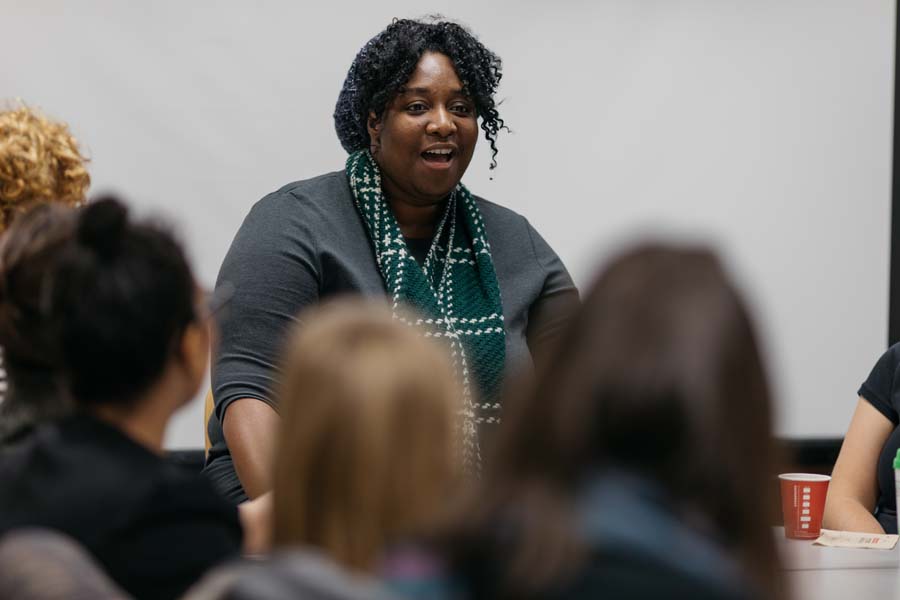
Rather than try to obtain the types of positions her previous managers held, Adaobi instead wanted to cultivate her strengths in holistic thinking, particularly in marketing, which she hadn’t had the opportunity or encouragement to do in the past. So Adaobi started her own marketing practice and maintained it for over seven years, working mostly with foundations. When someone suggested the executive director position with Twin Cities Media Alliance, it was an opportunity for Adaobi to take her work to the next level and work with media, a long standing interest of hers.
A key component to Adaobi’s brand of leadership is her ability to know what she wants, and act intentionally to reach it. These are also qualities that inspire Adaobi’s self-described tendency to be an “agitator,” and her involvement with social justice groups from a young age. These qualities aren’t always welcome in the corporate world, but Adaobi brought her entire, authentic self to work. When even the nonprofit world couldn’t provide what she was looking for, Adaobi used her tenacious initiative to make a space for herself—and others like her.
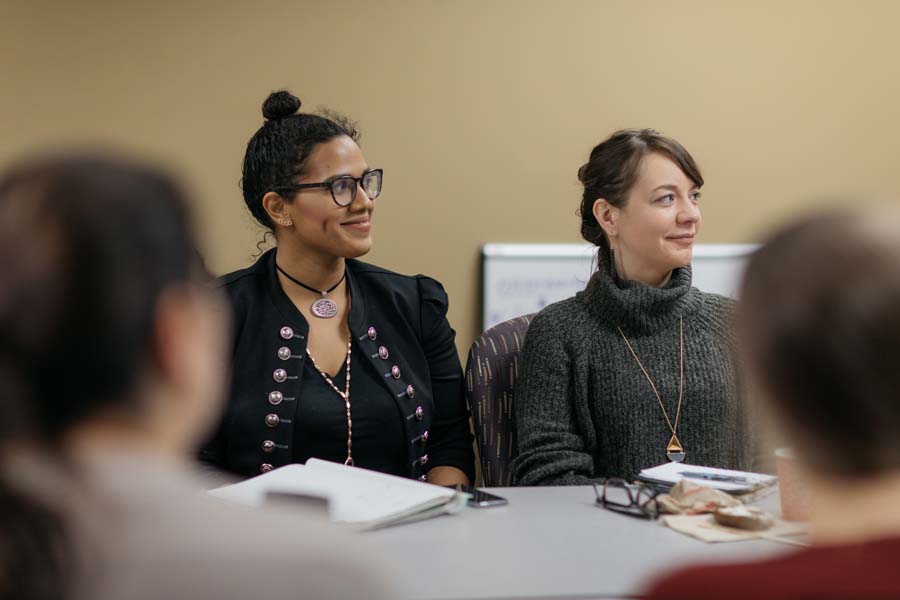
Creating Her Own Space
In Adaobi’s previous spaces, diversity and inclusiveness were often touted as goals, but the legwork of actually reaching out to communities to find out how to help them seldom happened. As she consulted with well-meaning organizations, looking for ways to build connections with communities they weren’t familiar with, she found herself hesitant to answer the question, “How do you do community engagement?” She knew that if she gave the answer, it would sound simple, but still wouldn’t be easy.
“You can’t email your way out of [community engagement]. There’s not a newsletter you can send out that’s gonna help you with that. You have to just get out there, talk to people, connect with community leaders, community organizers, and once you connect to one, normally that person can connect you to four or five more people. And you have to do it authentically. You can’t be thinking about your newsletter that you’re going to write. You can’t be thinking about the grant that you’re going to include them in. You can’t be thinking about that. You have to really see the value in building authentic relationships with the communities you serve, and the communities that allow you to serve them, allow you to come into their space, to be part of their story.”
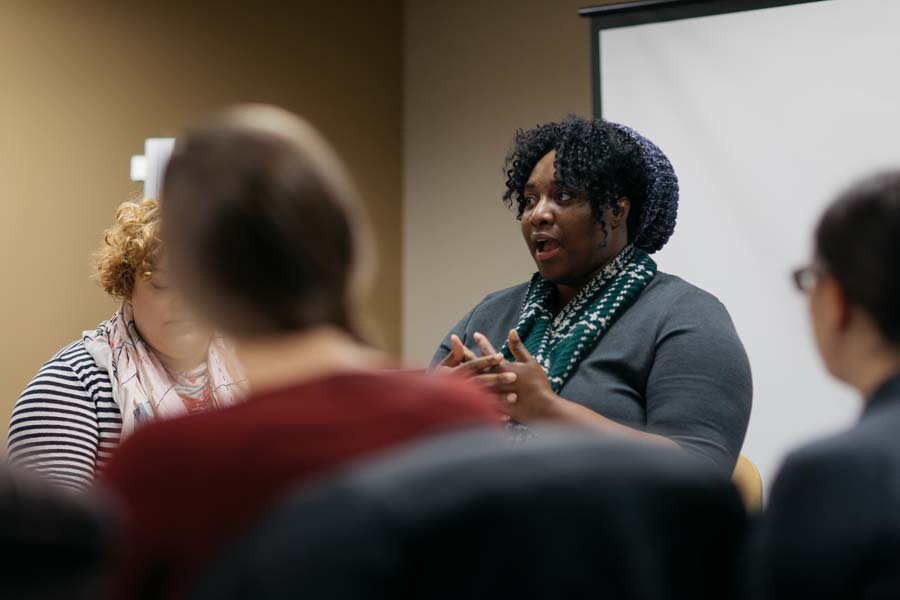
Adaobi made the Twin Cities Media Alliance and its publication, the Twin Cities Daily Planet, the space where those conversations could begin. She is only in the office with her staff one day a week, and makes it a point for them to constantly be out meeting people and building those authentic connections.
The Twin Cities can thank Adaobi’s smart, courageous leadership for the space she created, and look forward to more of these important, sometimes uncomfortable, but truly necessary conversations to move us forward in the next few years.
